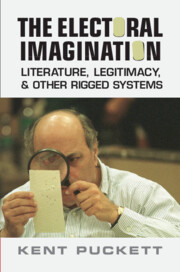Conclusion
A Silent Majority
Published online by Cambridge University Press: 26 September 2022
Summary
Despite their evident and sometimes pronounced differences in logic, rhetoric, strategy, and style, all the figures I discuss in this book rely on a few shared and underlying assumptions. While they can and do disagree about its shape, meaning, value, and future, they tend all to accept that modern social and political life is and has been defined by the question of how to manage a difficult negotiation between the ideas, preferences, and desires of individuals and the ideas, preferences, and desires of the group. Whether it be Jean-Jacques Rousseau or Jeremy Bentham, George Eliot or George Grote, William Morris or William Riker, Ralph Ellison or Kenneth Arrow, the writers and thinkers I’ve addressed take it as a fraught and incomplete given that the periodic crises and the essential complexity of modern life make it necessary not only to imagine new models of the group but also to identify practical methods and schemes that would allow one at least to act as if there were a significant and even organic way of recognizing what the people really think and want. Although some were enthusiasts, some were skeptics, and some were cynics, all of them recognize the importance of the problem established in Rousseau’s Social Contract: “How to find a form of association which will defend the person and goods of each member with the collective force of all, and under which each individual, while uniting himself with the others, obeys no one but himself, and remains as free as before.”1 Of course, for Rousseau, it was not enough simply to assert, announce, or even dream the existence of the general will; one needed also to imagine the mechanism, the process, the model of association or aggregation that would allow individuals to come together as something significantly more than the sum of their respective parts. Although the questions raised by Rousseau’s text are themselves legion, I have in this book focused on problems and paradoxes raised specifically by the nature and the machinery of aggregative political representation. Although Rousseau mostly hated the idea – perhaps because it was an idea from which he could not escape – others tend to accept that his imagined and fundamental “form of association” must amount to one or another model of representative as opposed to direct democracy; what gets you to something even remotely like the general will in large, pluralist societies will probably take the form an election whereby some individuals are somehow selected by other individuals somehow to represent the will of all.
- Type
- Chapter
- Information
- The Electoral ImaginationLiterature, Legitimacy, and Other Rigged Systems, pp. 320 - 342Publisher: Cambridge University PressPrint publication year: 2022

